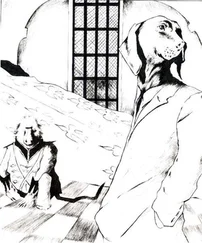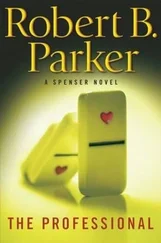K Parker - The Belly of the Bow
Здесь есть возможность читать онлайн «K Parker - The Belly of the Bow» весь текст электронной книги совершенно бесплатно (целиком полную версию без сокращений). В некоторых случаях можно слушать аудио, скачать через торрент в формате fb2 и присутствует краткое содержание. Жанр: Фэнтези, на английском языке. Описание произведения, (предисловие) а так же отзывы посетителей доступны на портале библиотеки ЛибКат.
- Название:The Belly of the Bow
- Автор:
- Жанр:
- Год:неизвестен
- ISBN:нет данных
- Рейтинг книги:5 / 5. Голосов: 1
-
Избранное:Добавить в избранное
- Отзывы:
-
Ваша оценка:
- 100
- 1
- 2
- 3
- 4
- 5
The Belly of the Bow: краткое содержание, описание и аннотация
Предлагаем к чтению аннотацию, описание, краткое содержание или предисловие (зависит от того, что написал сам автор книги «The Belly of the Bow»). Если вы не нашли необходимую информацию о книге — напишите в комментариях, мы постараемся отыскать её.
The Belly of the Bow — читать онлайн бесплатно полную книгу (весь текст) целиком
Ниже представлен текст книги, разбитый по страницам. Система сохранения места последней прочитанной страницы, позволяет с удобством читать онлайн бесплатно книгу «The Belly of the Bow», без необходимости каждый раз заново искать на чём Вы остановились. Поставьте закладку, и сможете в любой момент перейти на страницу, на которой закончили чтение.
Интервал:
Закладка:
Alexius sat up, startled.
‘Your sister?’ he queried.
‘My sister,’ Gorgas replied. ‘All on her own, to begin with; and then I joined her, and we carried on from there. But she was the one who started it all; credit where credit’s due.’
‘I see,’ Alexius said. ‘And what did she do?’
‘Simple.’ Gorgas stifled a yawn. ‘She founded another bank.’
‘Another bank?’
Gorgas nodded. ‘The Loredan Bank, which she established here on Scona fifteen years ago, when this was an uninhabited island with only the ruins of the farmsteads the Foundation had cleared out after a minor revolt. Actually, she was clever; she bought the island from the Foundation, and a trading franchise which she never intended to operate. But it gave her a reason for being here while she was setting up the Bank and starting to put out feelers among the hectemores, planting the idea in their heads. Then, when the time came, she anticipated the Foundation’s first strike and formed a business alliance with some long-term trading associates who also conveniently happened to be pirates: safe haven on Scona in return for stopping the Foundation from crossing the straits. They did a wonderful job, proper warships against the barges and tenders which were all the Foundation had available; I believe about seven hundred of Shastel’s finest went to the bottom that day, heavy armour and all. They’ve never tried it since, and as soon as Niessa had put together her own army she soon got rid of the pirates-’
‘Your sister has an army?’ Alexius asked mildly.
‘Yes indeed. Well,’ Gorgas said, ‘I’m in charge of it; that’s mostly what I do. But it’s her army, just as it’s her Bank. Let’s say it’s all in the family.
Alexius took a deep breath and let it go. ‘So what exactly did she do? I mean, how does this Bank of yours work?’
‘It’s all very straightforward,’ Gorgas replied. ‘The hectemores borrow from us to pay off the capital of their loans to the Foundation. Then they pay us. But we only take a seventh, just like in the original deal. And we don’t throw our weight about quite so much as they do, in the parts of Shastel we now run. Of course,’ he went on, ‘the Foundation doesn’t just sit there and take it; when a family remortgages, they send a raiding party to burn down the house and kill the people. And we send a raiding party to stop them; or, if we don’t happen to get there in time, to stop them doing it again. We’re very popular with the hectemores, of course; and we’re gradually opening up more and more territory where they can join us if they want to. They always do. You might say,’ he added with a wry grin, ‘that we’re a benevolent institution, just like the Foundation used to be.’
‘I see,’ Alexius said. ‘It sounds like a good idea.’
‘Oh, quite,’ said Gorgas Loredan. ‘It always does.’
CHAPTER THREE
From her window on the fifteenth floor of the east wing of the Citadel of Mount Shastel, on a clear day, Machaera could see across the lagoon to the small, rocky island of Scona. It wasn’t an impressive sight. At best, she could make out a brown hump on the skyline with no particular features, and when the sky was grey and grainy with snow-clouds there was nothing to see except a slight variation in colour and texture. But she often sat for hours at a time at her window, looking out and wondering why the Scona people hated her, and her family, and the wonderful Foundation she had worked all her life to belong to.
This afternoon there was a slight flurry of snow on the sea and the island was indistinguishable from the slate-coloured water of the lagoon, which made it hard for her to focus her thoughts and send them there. She sat with her elbows on the stone window ledge and let her eyelids droop; she’d be able to see better with her eyes closed (there was a paradox for Doctor Nila’s collection) and her mind open. A little snow drifted in through the open window and flecked her face with moisture, like tears.
As a lifelong student of the Principle, Machaera had been taught various techniques for focusing her mind. Most of them were more tricks than anything else, ways of fooling herself into believing that she was in a heightened state of awareness and thereby more closely attuned to the Principle than usual; she found them annoying, because surely it was stupid to try and trick oneself. But there was one, a simple mental exercise, that she did sometimes find useful. It was basically just a way of clearing her mind of irrelevant thoughts, a room-tidying procedure, mental housework, but the fact that it was prosaic didn’t make it any less effective.
She screwed her eyes shut, as if forcing her eyelids together could some how wring out the recollection of what she’d been looking at and make them lightproof, then allowed the muscles of her face to relax. That part of the exercise alone always made her feel more at ease, less concerned with success or failure. She took a couple of deep breaths and began the job of locating the various parts of her body and relaxing them. After a few minutes she yawned, which was a sign that she was doing the exercise properly.
One by one she examined the thoughts and memories she found cluttering up the floor of her mind. She imagined that she was in a library, and that the floor and tables were covered with books, left open and abandoned. She imagined herself picking up each book in turn, dusting it off, winding it tightly and sliding it into its tube, slotting it back into its proper place on the shelf. Here, for example, was the book of trivial distractions, containing such things as the pair of sandals that had to be collected from the cobbler, the raw patch of skin on her elbow where she’d grazed it on the chipped rim of the well, the slight headache that always bothered her when there was snow in the air. All those she solemnly rolled up and filed away, then turned to the book of intrusive preoccupations-
( Choose a place at random and read before rolling it up: the war, the enemy; why must there be a war now, in my lifetime? Why now, it isn’t fair; I have so much to do, so much to learn, I’m only young for such a short time, why must the war descend on me like an obnoxious relative who comes visiting when you want to be alone and refuses to leave? So many things impractical, impossible because of the war – the chance to travel, to visit great libraries in other cities, to learn; Mazeus on active service, instead of here, to talk to and listen to when there’s something I’ve read or thought of that has to be discussed; roll up this book, it’s fatally distracting .)
One by one she rolled them up and put them back, even the bewitchingly tempting book of speculations, in which was written all her thoughts on theories and interpretations, everything she wanted the truth to be ( that one especially; roll it up and put it on the top shelf ) until the desk was clear and her mind was ready to receive a new book. She visualised it, lying on the polished wood in front of her. She imagined the burnished brass tube with the label pasted on it; pushing her first and middle fingers into the top and opening them, pulling back to slide out the rolled-up book, taking the slender wooden batten to which the top edge of the roll was pasted in one hand, easing back the rest of the roll with the other, nudging across her heavy wooden ruler to stop it coiling back, reading the first section, which was always the same-
The one Principle that pervades all things – the concept is nebulous and vague enough to deter all but the most determined. Sometimes the thread is so wide and clear that it seems mundane and obvious, therefore not worthy of study. At other times, the stream dwindles down into so slight a trickle that it appears to be a figment of the imagination, something one deludes oneself into perceiving because one desires it so urgently. Between the general and trite, the doubtful and the self-made evidence, there is a dangerous temptation to steer a middle course, to assume that the truth must be the average of the available alternatives; which is like trying to write history by taking a vote from a convention of historians, assuming that the majority opinion must be the truth. But in the pursuit of the Principle, there is no place for common sense, belief or democracy. The Principle cannot be amended or simplified or improved. The Principle is that which it is .
Читать дальшеИнтервал:
Закладка:
Похожие книги на «The Belly of the Bow»
Представляем Вашему вниманию похожие книги на «The Belly of the Bow» списком для выбора. Мы отобрали схожую по названию и смыслу литературу в надежде предоставить читателям больше вариантов отыскать новые, интересные, ещё непрочитанные произведения.
Обсуждение, отзывы о книге «The Belly of the Bow» и просто собственные мнения читателей. Оставьте ваши комментарии, напишите, что Вы думаете о произведении, его смысле или главных героях. Укажите что конкретно понравилось, а что нет, и почему Вы так считаете.












